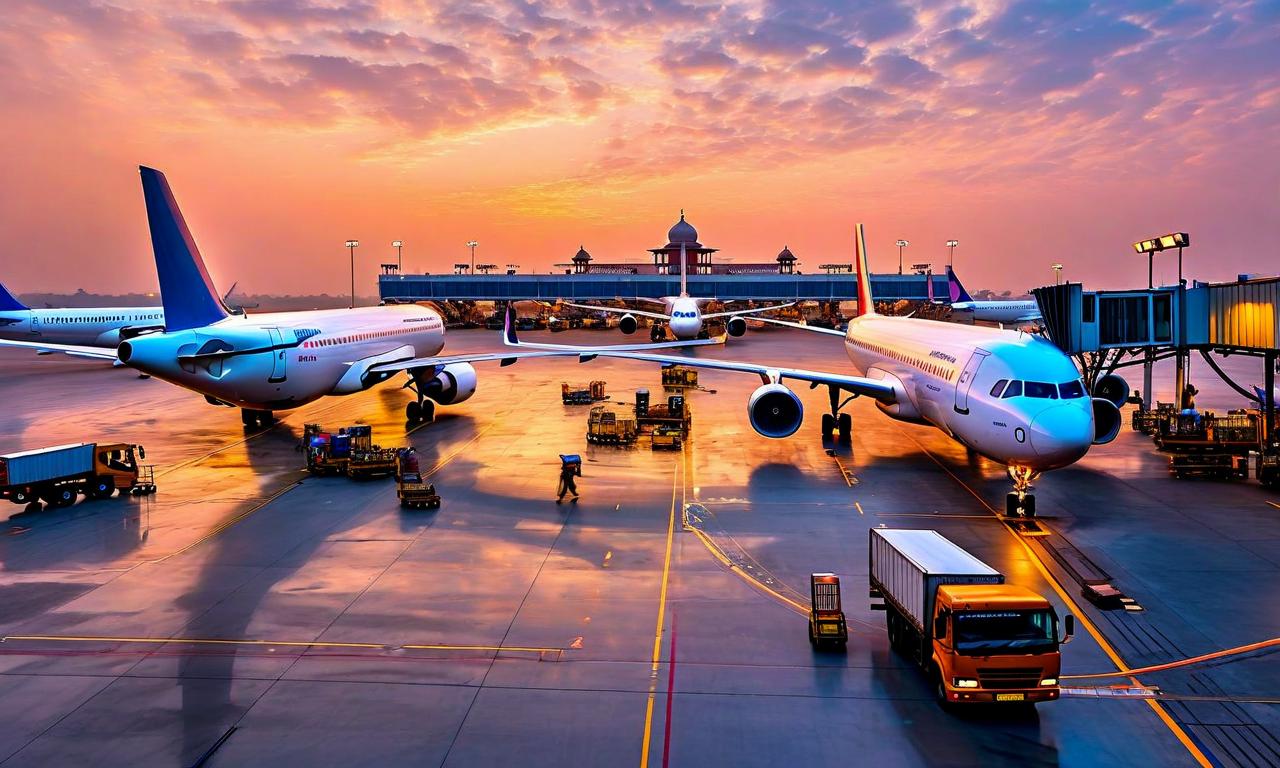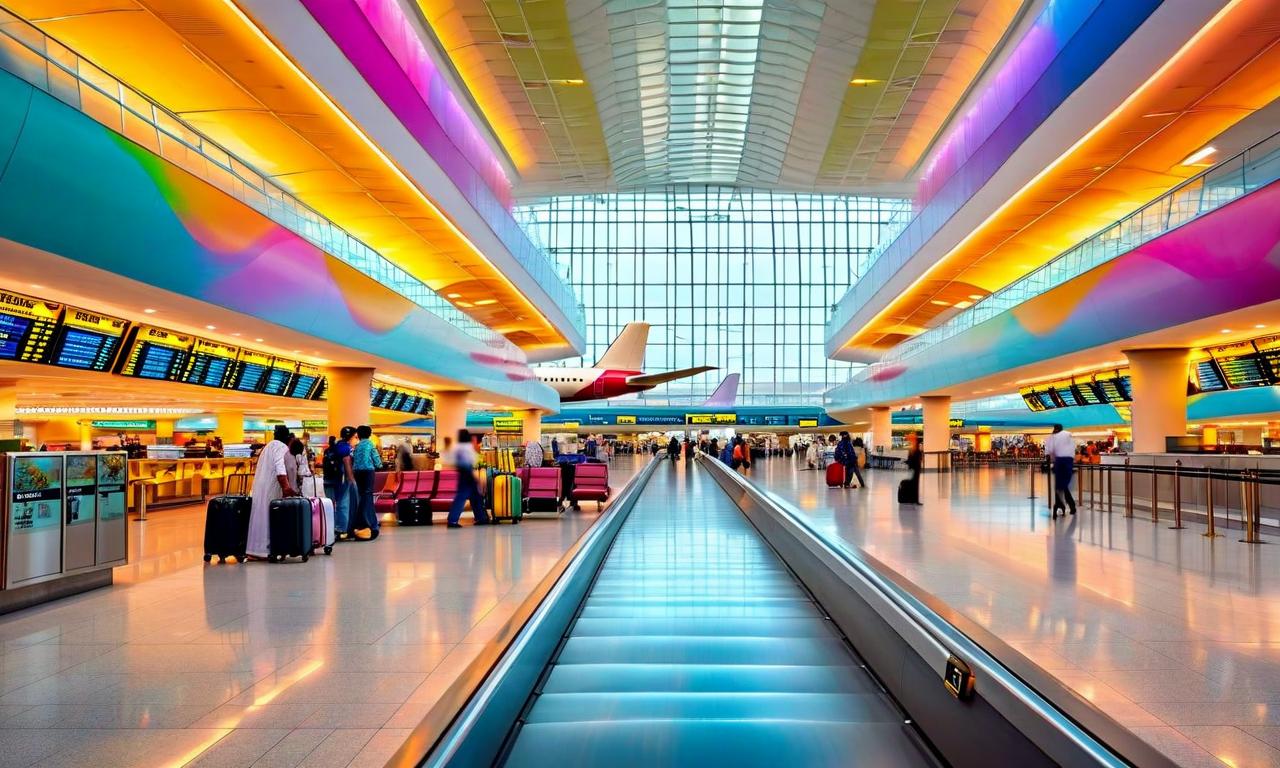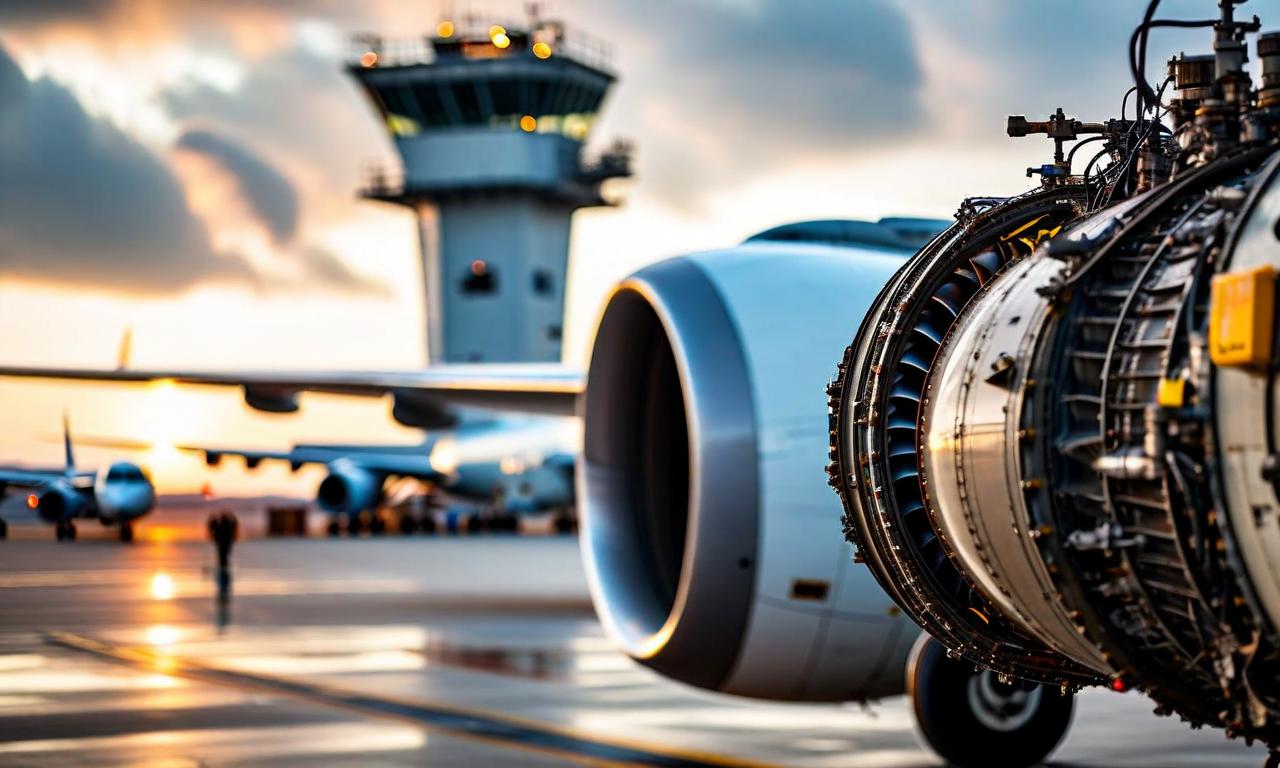Parliamentary Panel Flags Critical Safety Concerns in Indian Aviation Sector
A Parliamentary Standing Committee report highlights significant safety challenges in India's civil aviation sector. Key issues include chronic manpower shortages at DGCA, air traffic controller fatigue, backlog of unresolved safety findings, and challenges faced by the Aircraft Accident Investigation Bureau. The report also points out concerns about pilot fatigue, gaps in fire safety at smaller airports, insufficient surveillance of foreign MRO facilities, and inadequate training ecosystem capacity. The committee urges immediate action from the Ministry of Civil Aviation to address these critical safety risks.

*this image is generated using AI for illustrative purposes only.
A recent report by the Parliamentary Standing Committee on Transport, Tourism and Culture has shed light on significant safety challenges plaguing India's civil aviation sector. The report, presented in Parliament, outlines systemic weaknesses that could potentially compromise air safety in the country.
Chronic Manpower Shortages at DGCA
One of the primary concerns highlighted in the report is the persistent understaffing at the Directorate General of Civil Aviation (DGCA), India's aviation regulator. The committee attributes this to an ineffective recruitment model and recommends granting full administrative and financial autonomy to the DGCA, including the ability to offer industry-level salaries to attract and retain qualified personnel.
Air Traffic Controller Fatigue
The report raises alarms about fatigue among Air Traffic Controllers (ATCOs) managing India's increasingly congested airspace. Despite the sanctioning of 1,636 new ATCO posts, the committee calls for:
- Implementation of a national Fatigue Risk Management System
- Conducting a comprehensive staffing audit
Backlog of Unresolved Safety Findings
A significant backlog of unaddressed safety issues has been identified, including Level I classifications that pose immediate risks to flight safety. This backlog underscores the urgent need for prompt action to ensure the safety of air passengers and crew.
Aircraft Accident Investigation Bureau Challenges
The Aircraft Accident Investigation Bureau (AAIB) is facing its own set of problems:
- Severe understaffing
- Delays in producing final investigation reports
These issues could potentially hinder thorough and timely investigations of aviation incidents and accidents.
Additional Safety Concerns
The committee's report also highlights several other critical issues:
- Rising pilot fatigue, necessitating stricter monitoring of Flight Duty Time Limitations
- Gaps in fire safety and medical preparedness at tier-2 and tier-3 airports
- Insufficient surveillance of foreign Maintenance, Repair, and Overhaul (MRO) facilities and airlines
- Training ecosystem capacity not keeping pace with the industry's growth and demand
Call for Immediate Action
The Parliamentary Standing Committee has urged the Ministry of Civil Aviation to treat safety as a non-negotiable priority. It emphasizes the need for swift implementation of the recommendations to address these critical safety risks in the Indian aviation sector.
As the Indian aviation industry continues to grow rapidly, addressing these safety concerns becomes paramount to ensure the well-being of passengers and maintain India's reputation in the global aviation community. The Ministry of Civil Aviation now faces the challenge of taking decisive action and implementing the necessary reforms to enhance the safety standards of Indian aviation.
































